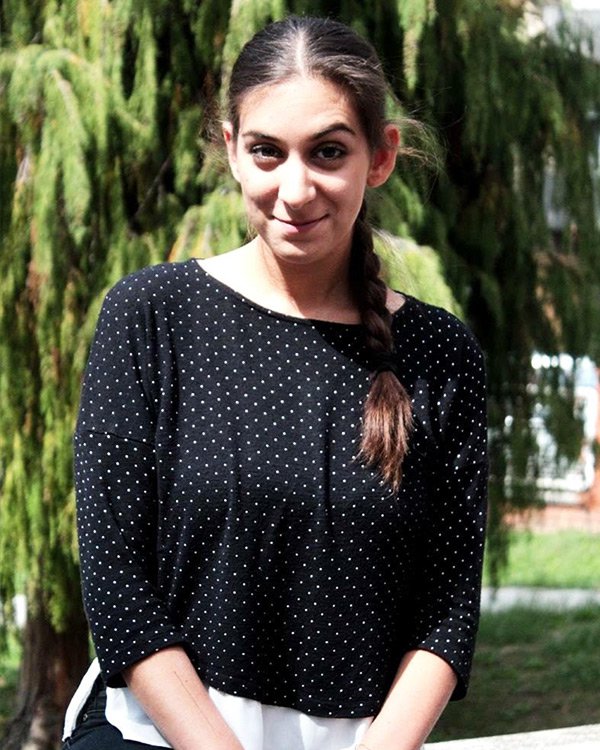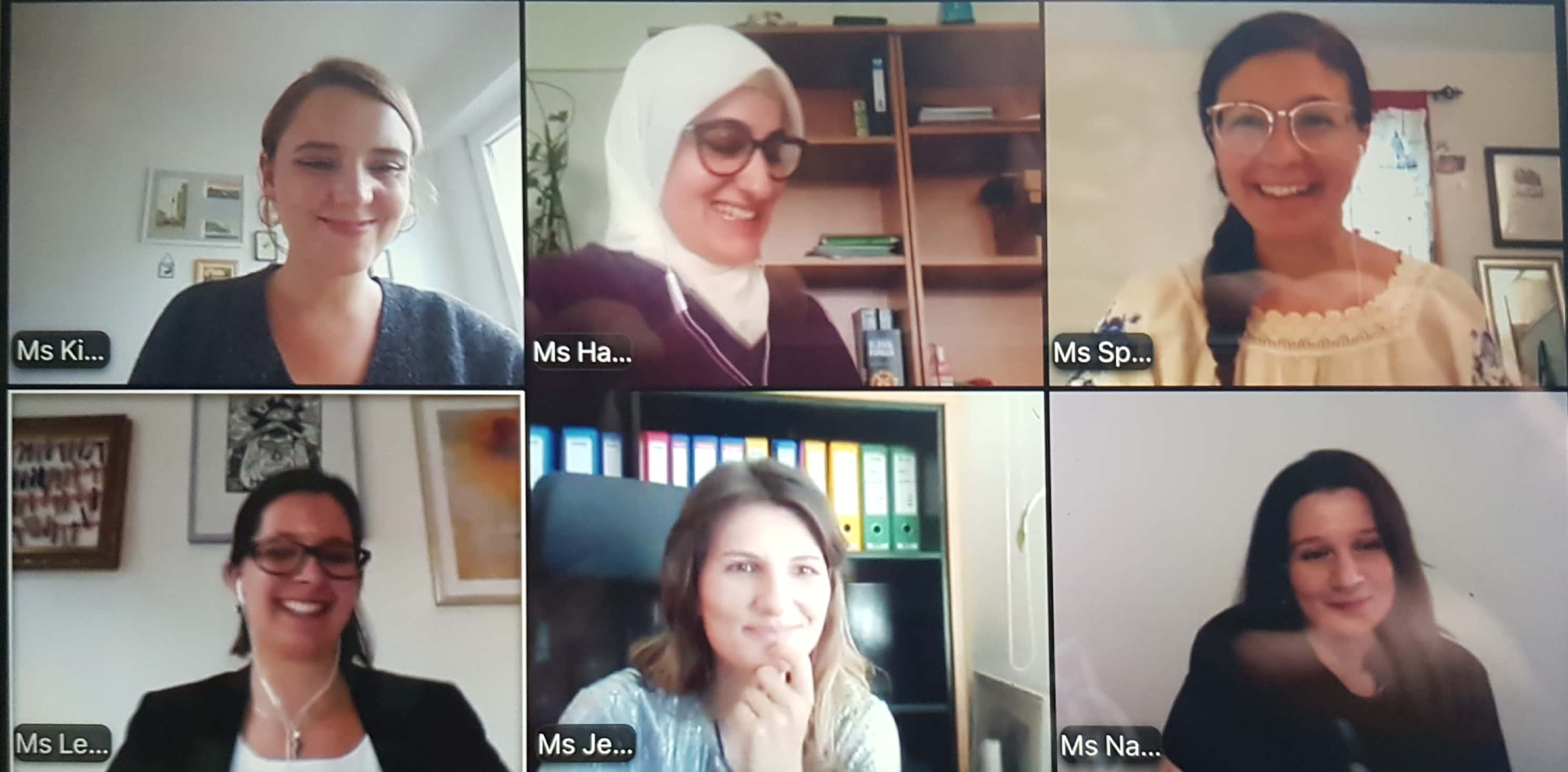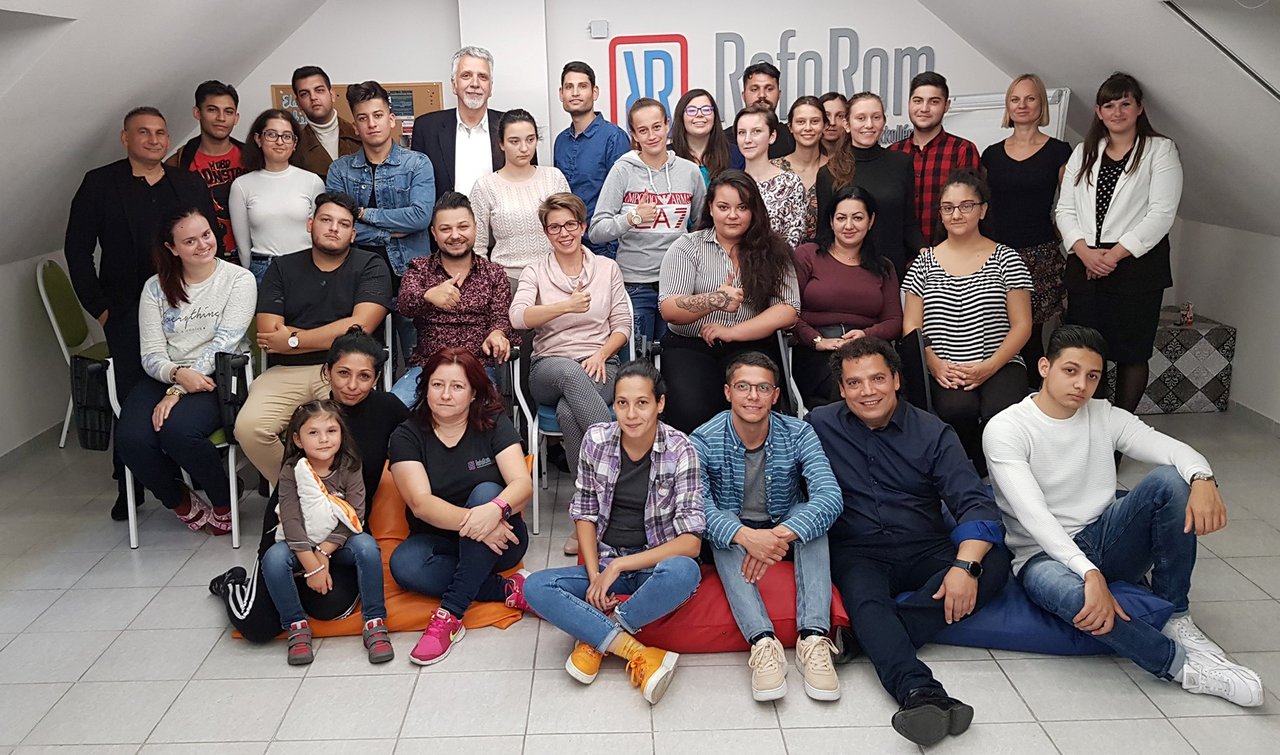A Letter from Burkhard Paetzold, serving as regional liaison for Central and Western Europe and Facilitator of work with the Roma people, based in Germany
August 2020
Write to Burkhard Paetzold
Individuals: Give online to E200392 for Burkhard Paetzold’s sending and support
Congregations: Give to D506900 for Burkhard Paetzold’s sending and support
Churches are asked to send donations through your congregation’s normal receiving site (this is usually your presbytery)
Subscribe to my co-worker letters
That the creation itself also will be set free from its slavery to corruption into the freedom of the glory of the children of God. For we know that the whole creation groans and suffers the pains of childbirth together until now. Romans 8:21,22 NASB
Dear Friends,
Warm greetings from Germany, and many thanks for all your support. These are unprecedented times, and I hope for all of you that you are safe in body, mind, and spirit.
The Presbyterian Mission Agency has suspended traveling until the end of 2020. So, like some of you, I work from my home, and learned a lot about virtual meetings and seminars.
We really don’t want to practice “social distancing.” Now more than ever, we need to keep and broaden our social relationships. Let’s call it “physical distancing” instead.
The COVID-19 crisis causes us to see the best, and the worst in society and thus opens up new and different perspectives and narratives. This crisis can help us become more attentive not only for things that happen around us, but also for communal, societal, and global issues. Are we able to look with new eyes at God’s “groaning and suffering creation,” the global inequalities and economic injustice, the structural racism that stems from old and new colonizing frames? Can we recognize that populism, nationalism, or conspiracy theories are unable to solve any problem? Can we see that unity and solidarity are the rare goods we need the most?
When European countries closed their borders unilaterally, and the EU debated future refinancing after the COVID-19 crisis, European churches were among the first to focus on European solidarity and unity. In a recent virtual summer conference of the Conference of European Churches (CEC) “Do not wash your hands from Democracy, Human Rights and Rule of Law obligations during COVID-19” in early July representatives of different denominations and faith traditions and from different countries in Europe expressed sadness that congregations and communities haven’t been able to meet for worship, but at the same time agreed that not being able to meet together in-person is not a matter of restrictions of religious freedom but rather an expression of the very high priority every faith tradition places on saving human lives.It was encouraging to hear how many faith communities are caring for the elderly and disadvantaged groups, and to listen to youth speakers talking about their experiences and visions for interfaith and transnational solidarity.
We also discussed a #Faith4Rights toolkit of the UN reaching out to people of different religions and beliefs to motivate them not to tolerate exclusionary interpretations, which instrumentalize religions, beliefs or their followers, but instead, to protect religious minorities, refugees and migrants, particularly where they have been targeted by incitement to hatred and violence.
The CEC conference also addressed opportunities and challenges. Metropolitan Emmanuel of France said, “As churches, our ongoing task is to address structural inequalities, build bridges and listen to the voice of the oppressed, … I also want to express my deep concern about migrants, refugees and asylum seekers that are in a fragile situation, thus not always being able to practice the health recommendations that are essential to stop the spreading of the coronavirus.”
Churches also advocate for minorities, like the Roma. Georgina Laboda, a Hungarian Reformed Student of Roma decent: “Roma people are over-represented among socially disadvantaged communities in Hungary. Most of the time, they are living in segregation, in houses without any comfort at the margins of settlements. … proper hygiene, frequent hand wash, and social distancing. are hard to implement under segregated living conditions. In addition to all this, the Corona crisis can potentially incite hatred against Roma communities. And we cannot tolerate people’s rights be restricted under the pretext of the coronavirus as we already have evidences for this in Bulgaria.”
The COVID-19 crisis shows our systemic failures. In Germany, a COVID-19 outbreak in a meat factory revealed again what had been evident for those who had had their eyes open: In a flash, the COVID crisis laid bare the structural wrongdoings in our food production and consumption system: The profit-driven manipulated hunger for the availability of cheap meat seven days a week, the precarious exploitative working and housing condition of migrant meat processing workers, the ecological resource-wasting production of meat versus vegetables and grains, the suffering of animals housed in narrow boxes and transported all over the globe.
Rev. Patrick Roger Schnabel of the Protestant Churches in Germany (EKD) summarized the CEC summer conference: “COVID-19 is at the moment the most visible, but not the only global crisis: Climate change, the loss of biodiversity, the degradation of soil, air and water, the rise of intolerance, nationalism, hate against people that are different haven’t gone away all by themselves. …So our strong reaction to this crisis can be a blueprint for our reaction to other crises …when politicians tell us society cannot change its habits so fast, or such a transformation is economically too costly … or you simply have to cope with it, we can now point to the experience of the last few months.”
Let’s confess together: We have a choice and a voice. Come and make yourself heard. Go and tell the message that has set you free.
Grace and Peace,
Burkhard
![]() You may freely reuse and distribute this article in its entirety for non-commercial purposes in any medium. Please include author attribution, photography credits, and a link to the original article. This work is licensed under a Creative Commons Attribution-NonCommercial-NoDeratives 4.0 International License.
You may freely reuse and distribute this article in its entirety for non-commercial purposes in any medium. Please include author attribution, photography credits, and a link to the original article. This work is licensed under a Creative Commons Attribution-NonCommercial-NoDeratives 4.0 International License.


